School Highlights
Missouri State University-West Plains serves 2,241 students (37% of students are full-time).
The college's student:teacher ratio of 13:1 is lower than the state community college average of 16:1.
Minority enrollment is 18% of the student body (majority Black and Hispanic), which is less than the state average of 41%.
Quick Stats (2025)
- Enrollment: 2,241 students
- In-state tuition: $4,020
- Out-state tuition: $7,440
- Student:teacher ratio: 13:1
- Minority enrollment: 18%
- Source: Integrated Postsecondary Education Data System (IPEDS)
School Overview
The teacher population of 176 teachers has stayed relatively flat over five years.
Missouri State University-West Plains
(MO) Community College Avg.
Carnegie Classification
Associate's Colleges: High Transfer-Mixed Traditional/Nontraditional
Baccalaureate Colleges: Diverse Fields
Institution Level
At least 2 but less than 4 years
At least 2 but less than 4 years
Institution Control
Public
Public
Total Faculty
176 staff
139 staff
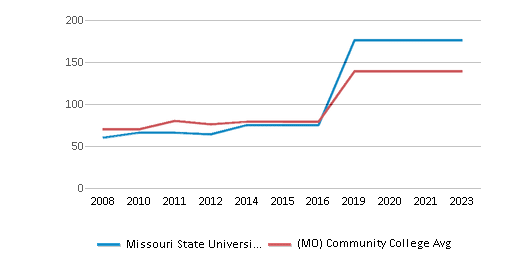
School Calendar
Student Body
The student population of Missouri State University-West Plains has grown by 14% over five years.
The student:teacher ratio of 13:1 has increased from 11:1 over five years.
The Missouri State University-West Plains diversity score of 0.32 is less than the state average of 0.61. The school's diversity has grown by 17% over five years.
Total Enrollment
2,241 students
1,159 students
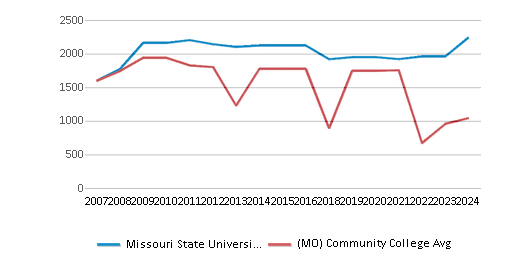
Student : Teacher Ratio
13:1
16:1
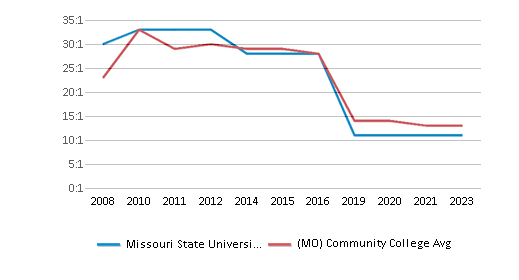
# Full-Time Students
834 students
718 students
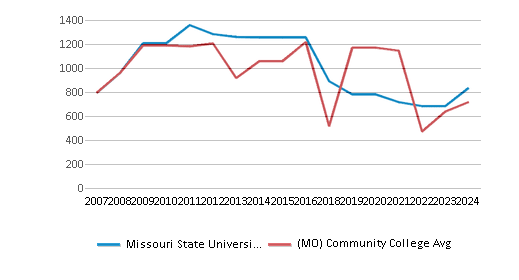
# Part-Time Students
1,407 students
1,407 students
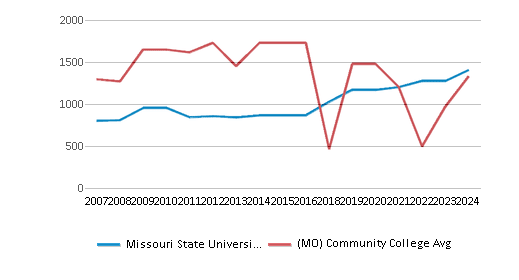
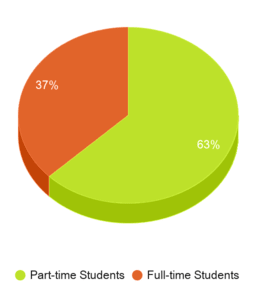
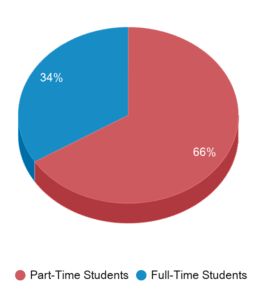
# Enrollment Undergraduate
224 students
246 students
# Full-Time Undergraduate Students
834 students
834 students
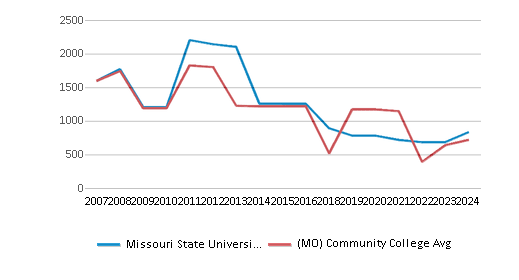
# Full-Time Graduate Students
n/a
11 students
# Part-Time Undergraduate Students
1,407 students
684 students
# Part-Time Graduate Students
n/a
9 students
Total Dormitory Capacity
n/a
200 students
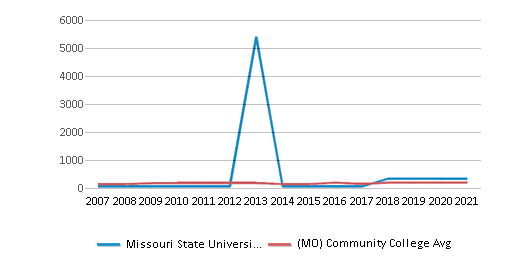
% American Indian/Alaskan
1%
n/a
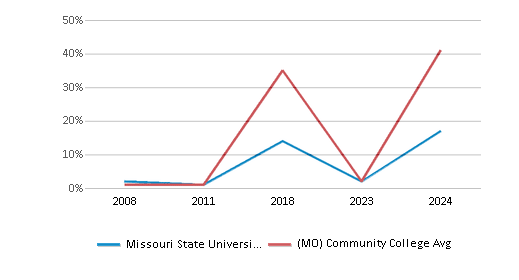
% Asian
1%
2%
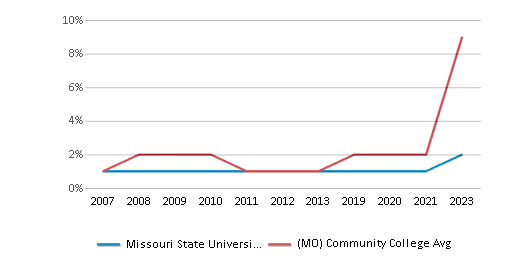
% Hispanic
2%
6%
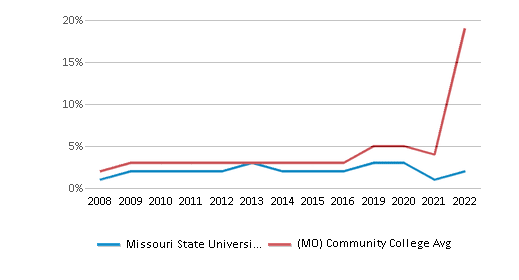
% Black
2%
10%
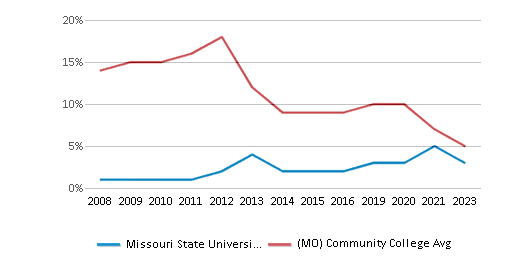
% White
82%
59%
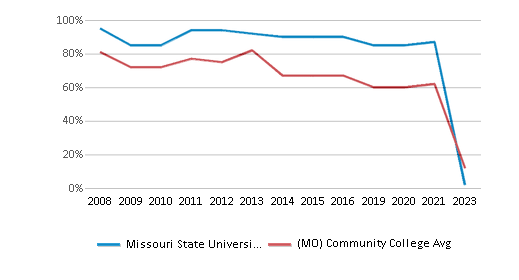
% Hawaiian
4%
1%
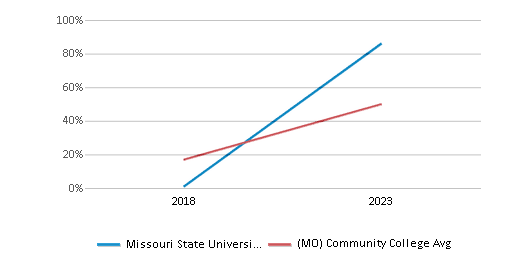
% Two or more races
3%
4%
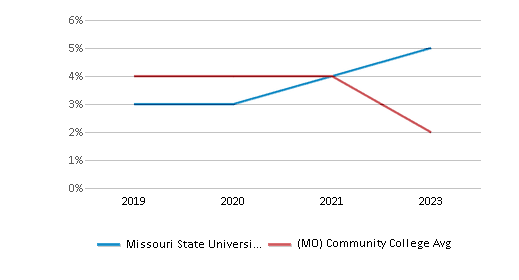
% Non Resident races
n/a
1%
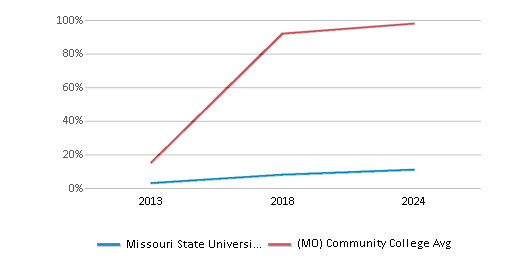
% Unknown races
6%
17%
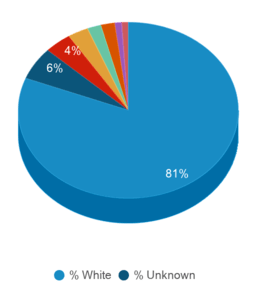
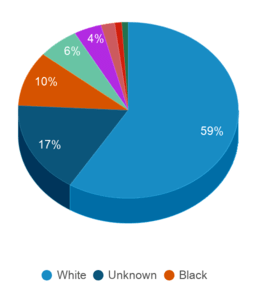
Diversity Score
0.32
0.61
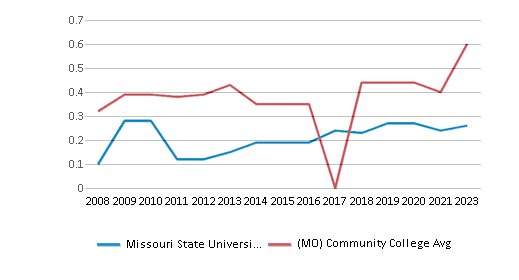
College Completion Rate (Students who graduate in less than 4 years)
0.3333%
0.433%
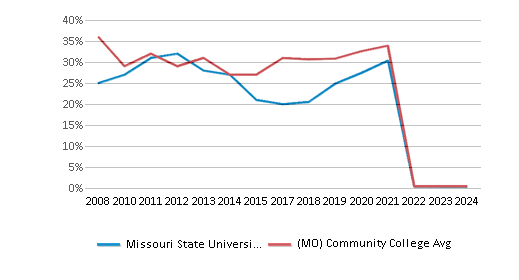
College Completion Rate (Students who graduate in 4 years or more than 4 years)
n/a
0.6154%
Average Graduate Earnings (10 Years)
$28,400
$30,900
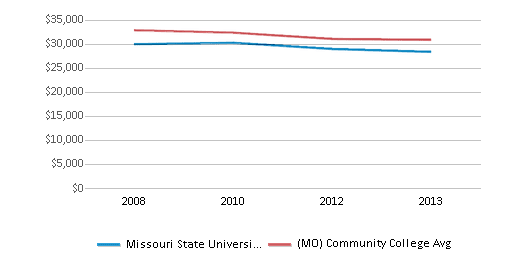
Tuition and Acceptance Rate
The public in-state tuition of $4,020 is more than the state average of $3,825. The in-state tuition has declined by 12% over four years.
The public out-state tuition of $7,440 is more than the state average of $5,579. The out-state tuition has declined by 13% over four years.
In-State Tuition Fees
$4,020
$3,825
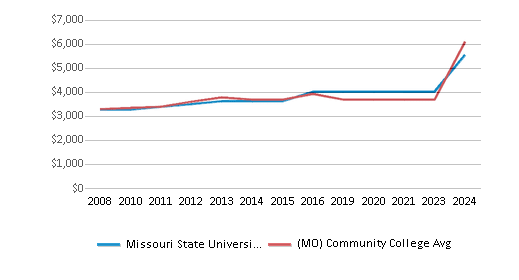
Out-State Tuition Fees
$7,440
$5,579
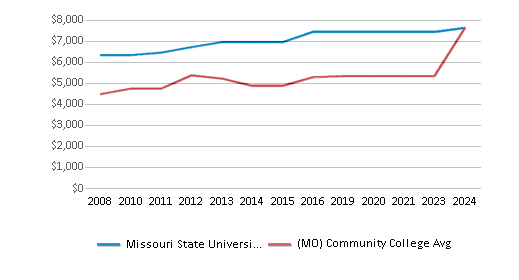
% Students Receiving Some Financial Aid
95%
91%
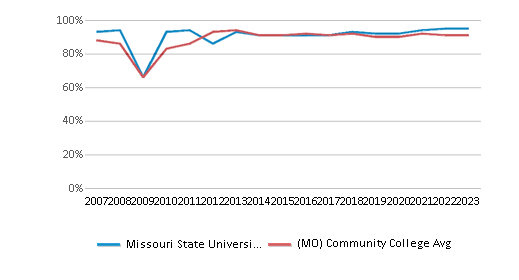
Median Debt for Graduates
$10,125
$10,500
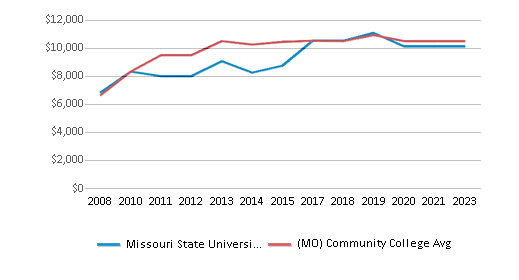
Median Debt for Dropouts
$5,324
$5,500
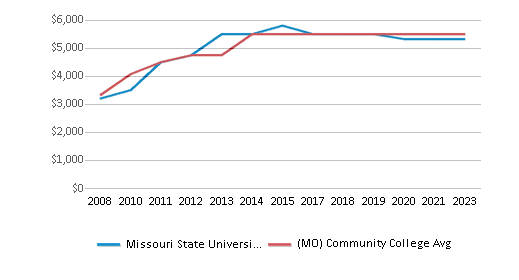
Acceptance Rate
n/a
94%
Sports
Total Sports Offered
3 sports
Sports
Basketball, Cheering, Volleyball
Source: 2024 (or latest year available) Integrated Postsecondary Education Data System (IPEDS)
School Notes
- Missouri State University-West Plains was founded in 1963 as the West Plains Residence Center. In 1977, the SMSU Board of Regents and, subsequently, the Missouri General Assembly, designated the name "West Plains Campus of Southwest Missouri State University" to replace Residence Center. In 1981, the legislature enacted a permanent status bill for the campus. In 1991, the legislature passed House Bill 51 which gave the West Plains Campus the authority to offer "one-year certificates, two-year associate degrees and credit and non-credit courses." Missouri State University-West Plains specializes in providing quality education to students of all ages in the south central Ozarks region of Missouri. For over 50 years, the college has grown and expanded to offer a liberal arts transfer curriculum at the freshman and sophomore levels, selected occupational and technical education programs, and a variety of continuing education courses. Enrollment is approximately 2,200 students per semester. The campus consists ofsix classroom and administrative buildings—Cass Hall, Garfield Hall, Kellett Hall, Looney Hall, Melton Hall, and the Lybyer Enhanced Technology Center. The $4.3 million Michael J. Lybyer Enhanced Technology Center, opened in Spring 2000. In addition to the classroom and administrative buildings, the campus includes the Garnett Library, a 60-person residence hall called the Grizzly House, the Putnam Student Center, and the V.H. Drago College Store. In 2000, the campus received two additional properties, Richards House, which is the permanent residence of the Missouri State University – West Plains Chancellor, and Gohn, whichhouses the Missouri State University-Springfield Outreach Office. Missouri State University-West Plains offers Associate degrees, transfer programs and training for immediate employment. Missouri State University-West Plains is accredited by the Higher Learning Commission of the North Central Association of College and Secondary Schools.
Frequently Asked Questions
How much does Missouri State University-West Plains cost?
Missouri State University-West Plains's tuition is approximately $4,020 for In-State students and $7,440 for Out-State students.
What sports does Missouri State University-West Plains offer?
Missouri State University-West Plains offers 3 interscholastic sports: Basketball, Cheering and Volleyball.
Recent Articles

Obtaining Your Bachelor's Degree at a Community College
Explore the evolving landscape of community colleges offering bachelor's degrees, addressing affordability, accessibility, and workforce needs.

A to Z of Community College Certificates and Courses
From business and healthcare to technology and skilled trades, the article showcases the breadth of options available to students seeking to enhance their knowledge, develop new skills, or pursue career advancement.

What is a Community College?
This comprehensive guide explains what a community college is, its history, and its role in higher education. It covers the types of programs offered, differences from four-year colleges, benefits of attending, and important considerations for prospective students, providing valuable insights for those exploring educational options.










